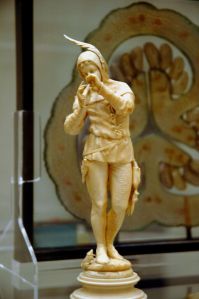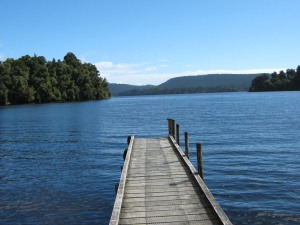A few months ago I went to a UNOH seminar and, as part of the worship before the seminar, we sang the old song Lord of the Dance. I was pleasantly surprised to hear the catchy tune again and thought this song, with its earthy lyrics, was very relevant to both the work of UNOH and the seminar we were about to be a part of. I couldn’t help but be transported back to the 70s though, to the first time I heard this song. I used to see it on one of those ads that the Christian Television Association used to do. The cringe factor was off the scale for most of those ads, but for some reason the tune of this song has always stayed with me.
 Lord of the Dance (not to be confused with the theatre production by Michael Flatley) was written by Sydney Carter in 1963. Here’s what he wrote about the song:
Lord of the Dance (not to be confused with the theatre production by Michael Flatley) was written by Sydney Carter in 1963. Here’s what he wrote about the song:
“I see Christ as the incarnation of the piper who is calling us. He dances that shape and pattern which is at the heart of our reality. By Christ I mean not only Jesus; in other times and places, other planets, there may be other Lords of the Dance [my edits – a bit new agey for me. Not really sure how Carter saw Jesus, but keep reading]. But Jesus is the one I know of first and best. I sing of the dancing pattern in the life and words of Jesus.
Whether Jesus ever leaped in Galilee to the rhythm of a pipe or drum I do not know. We are told that David danced (and as an act of worship too), so it is not impossible. The fact that many Christians have regarded dancing as a bit ungodly (in a church, at any rate) does not mean that Jesus did.
The Shakers didn’t. This sect flourished in the United States in the nineteenth century, but the first Shakers came from Manchester in England, where they were sometimes called the “Shaking Quakers”. They hived off to America in 1774, under the leadership of Mother Anne. They established celibate communities – men at one end, women at the other; though they met for work and worship. Dancing, for them, was a spiritual activity. They also made furniture of a functional, lyrical simplicity. Even the cloaks and bonnets that the women wore were distinctly stylish, in a sober and forbidding way.
Their hymns were odd, but sometimes of great beauty: from one of these (Simple Gifts) I adapted this melody. I could have written another for the words of ‘Lord of the Dance’ (some people have), but this was so appropriate that it seemed a waste of time to do so. Also, I wanted to salute the Shakers.
If you know the tune, let the words sink in as you read or maybe sing it to yourself as you remember the Lord of the Dance who came to bring life for all:
I danced in the morning when the world was begun,
And I danced in the moon and the stars and the sun,
And I came down from heaven and I danced on the earth,
At Bethlehem I had my birth.
Dance, then, wherever you may be,
I am the Lord of the Dance, said he,
And I’ll lead you all, wherever you may be,
And I’ll lead you all in the Dance, said he.
I danced for the scribe and the pharisee,
But they would not dance and they wouldn’t follow me.
I danced for the fishermen, for James and John –
They came with me and the Dance went on.
Chorus
I danced on the Sabbath and I cured the lame;
The holy people said it was a shame.
They whipped and they stripped and they hung me on high,
And they left me there on a Cross to die.
Chorus
I danced on a Friday when the sky turned black –
It’s hard to dance with the devil on your back.
They buried my body and they thought I’d gone,
But I am the Dance, and I still go on.
Chorus
They cut me down and I leapt up high;
I am the life that’ll never, never die;
I’ll live in you if you’ll live in me –
I am the Lord of the Dance, said he.
Chorus










